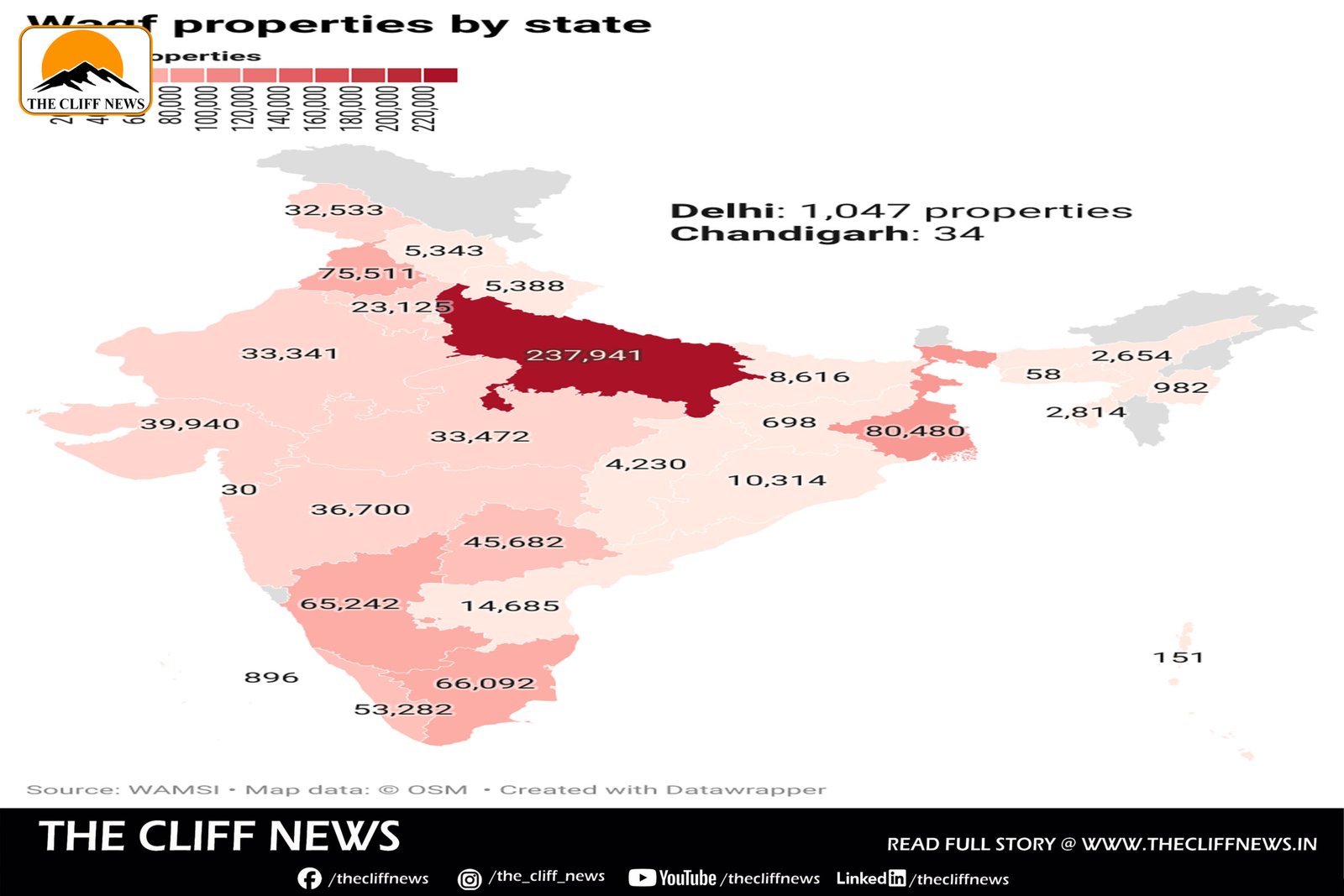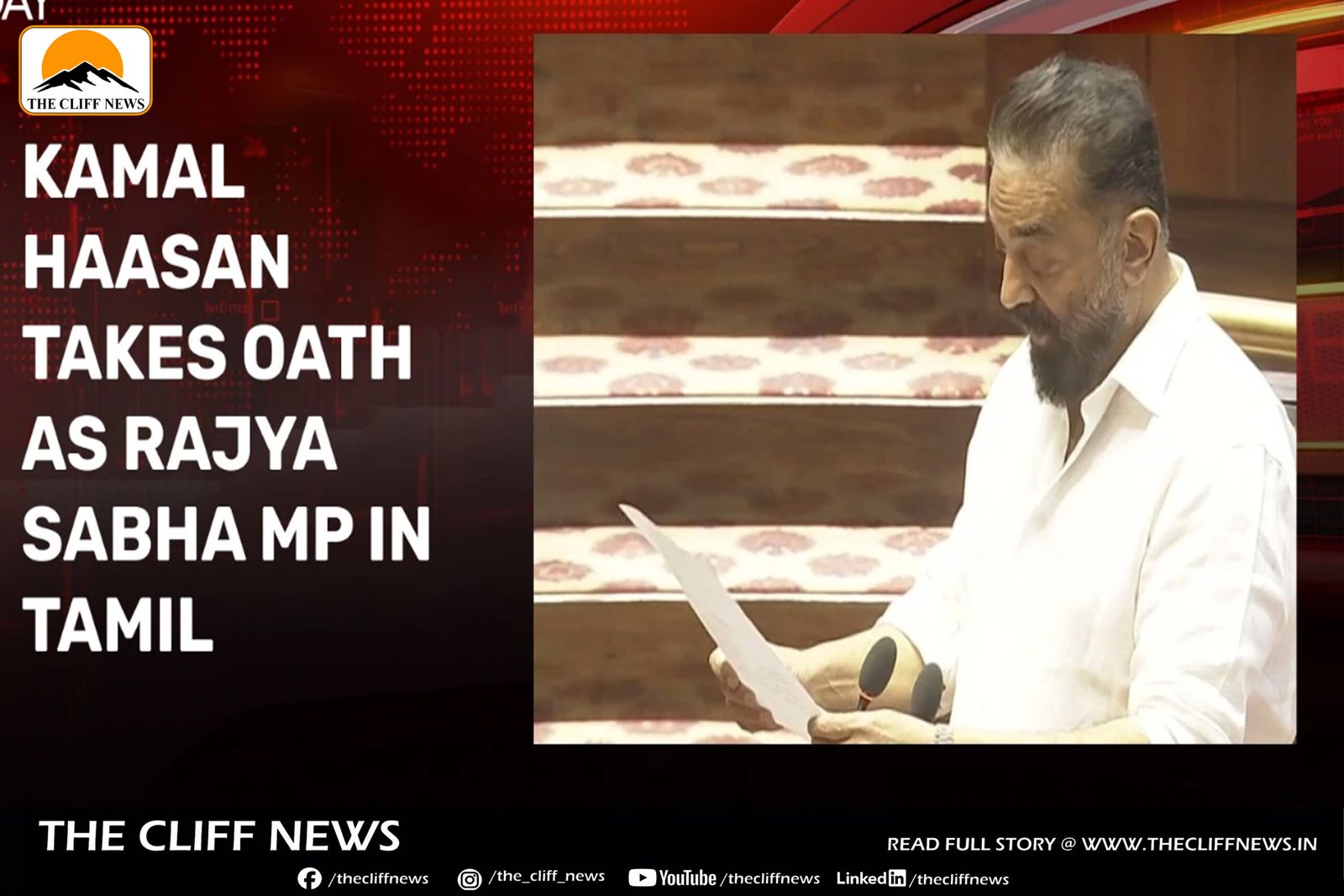With Parliament passing the Waqf (Amendment) Bill with comfortable majorities in both the Lok Sabha and Rajya Sabha, significant changes are expected in the governance and regulation of Waqf properties across India. Data from the Ministry of Minority Affairs reveals that out of the 8.8 lakh Waqf assets spread across 30 states and Union Territories, over 73,000 are currently under dispute and could be directly affected by the new legal provisions.
A Waqf is a piece of personal property voluntarily dedicated by a Muslim for a specific religious, charitable, or sometimes private purpose. Though the beneficiaries may vary, the ownership is considered to be vested with God. The Waqf Assets Management System of India (WAMSI) database, maintained by the central government, records details of all Waqf properties, including their type, management, and status.
According to WAMSI, Uttar Pradesh has the highest number of Waqf assets at 2.4 lakh, managed across both Sunni and Shia boards. It is followed by West Bengal (80,480), Punjab (75,511), Tamil Nadu (66,092), and Karnataka (65,242). Bihar is the only other state besides UP that has separate Waqf boards for Sunni and Shia communities; other states operate with unified boards.
Of the total 8.8 lakh Waqf properties, around 6.2 lakh fall under five major categories: graveyards, agricultural land, mosques, shops, and houses. Notably, graveyards alone constitute 17.3%, while agricultural land and mosques account for 16% and 14%, respectively.
Amid opposition criticism, the NDA government had referred the Bill to a Joint Parliamentary Committee, which accepted 14 amendments proposed by NDA MPs while rejecting all 44 suggestions from the Opposition. The final Bill redefines how Waqf properties are to be administered, including changing the composition of state Waqf boards and enhancing the state government’s role in dispute resolution.
Disputed Waqf properties are classified under three main categories: encroached, under litigation, and alienated. Litigation can be external (civil suits involving individuals) or internal (disputes within the Waqf Board). Alienated properties are those involved in illegal transfers and are subject to civil suits, while encroached properties refer to those allegedly built on government land. These disputes, under the new Bill, may be resolved by a tribunal comprising a District Judge and a state government officer of Joint Secretary rank.
One of the most high-profile Waqf disputes in India’s history was over the Babri Masjid in Ayodhya, demolished in 1992. The case was heard across various judicial levels before the Supreme Court delivered its verdict in 2019, allowing for the construction of the Ram Temple at the site.
Among the states, Punjab, West Bengal, Uttar Pradesh, Madhya Pradesh, and Andhra Pradesh report the highest number of disputed Waqf properties. Punjab has the highest proportion of encroached properties, with 56.5% of its 75,511 assets under encroachment. In comparison, UP, despite having the most Waqf properties, has just 3,044 under dispute, while West Bengal reports 3,742 disputed properties, placing it second in volume.



